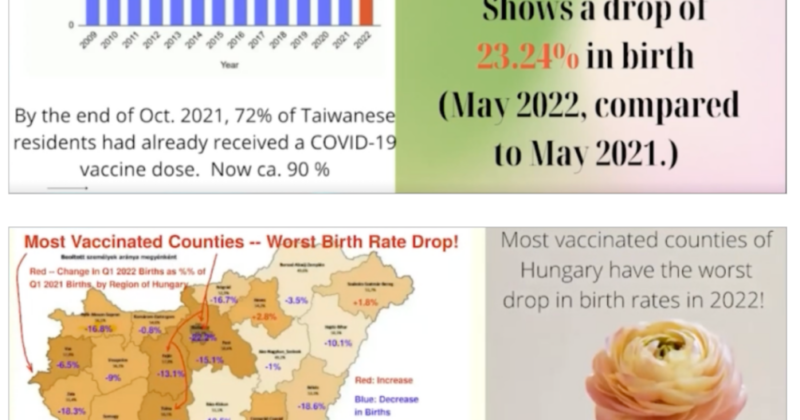The Medicines and Healthcare products Regulatory Agency (MHRA) in the UK has refused to release data on adverse reactions in pregnant women following the COVID-19 vaccination rollout. The agency admitted to having the data but cited an exemption, stating that they planned to issue a report. However, no publication date has been provided for the information recorded during the first half of 2021.
Although birth rates had been declining before the pandemic and vaccination, there is evidence that the spike protein of the SARS-CoV-2 virus can damage the ovaries and testes. It was only after nine months of vaccinations being offered to pregnant women that a decline in birth rates began to show.
Sweden, which has one of the highest vaccination rates, experienced a significant drop in newborns, reaching its lowest point since 2005. Stockholm’s birthrate was 14% lower in the first quarter of 2022 compared to the same period the previous year. Other highly vaccinated countries such as Taiwan, Hungary, Germany, and Canada also reported declines in birth rates.
The MHRA did release a redacted interim report in July 2021, which included information from 1,366 pregnant women who received the AstraZeneca, Pfizer, and Moderna COVID vaccines. The report revealed that a significant percentage of women who received the vaccines reported adverse drug reactions (ADRs), with 66% of those who received the AstraZeneca jab reporting at least one ADR.
Critics argue that COVID vaccines were pushed on pregnant women before completion of reproduction toxicology reports or trials in pregnant women. They claim that these vaccines may have caused infertility, miscarriages, and stillbirths. European pharmacovigilance data up to July 2022 showed thousands of reports of pregnancy and post-pregnancy problems, including reproductive system and breast disorders.
Experts also suggest that polyethylene glycol (PEG) in the vaccines, which is toxic to fetuses, and the spike proteins produced by the vaccines can have adverse effects on reproductive health. Studies have shown a decrease in male sperm count after vaccination, and the accumulation of spike proteins in women’s ovaries.
It is important to note that factors other than vaccines, such as stress, environmental pollution, and electromagnetic fields, can also affect reproductive health. However, the timing of the decline in birth rates coinciding with the vaccine rollout raises concerns.
In conclusion, the refusal of the MHRA to release data on adverse reactions in pregnant women post COVID vaccination rollout, coupled with reports of declining birth rates in highly vaccinated countries, raises questions about the potential impact of vaccines on reproductive health. Further research and transparency are needed to fully understand the effects of COVID vaccines on pregnancy and fertility.

